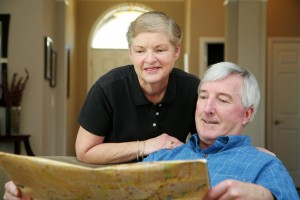Under new rule proposals soon to be released by the Financial Industry Regulatory Authority (FINRA), financial advisers would be able to delay disbursing funds from the accounts of senior investors if they believe financial elder abuse may be taking place.
 One of the proposed rules would allow financial advisers to wait up to 15 days to disburse funds from senior investors’ accounts if they reasonably believe that financial exploitation is occurring. The proposed rule defines a senior investor as a person who is age 65 or older, or an investor who may be vulnerable for other reasons. The rule would allow advisers to reach out to a person designated as a trusted contact.
One of the proposed rules would allow financial advisers to wait up to 15 days to disburse funds from senior investors’ accounts if they reasonably believe that financial exploitation is occurring. The proposed rule defines a senior investor as a person who is age 65 or older, or an investor who may be vulnerable for other reasons. The rule would allow advisers to reach out to a person designated as a trusted contact.
A related proposal would require financial advisers to make a reasonable attempt to get contact information for a trusted person on senior investors’ accounts. Under the current proposal, if a senior investor declines to provide such information, the adviser is still permitted to open the account.
The proposed rules would require that if an adviser paused disbursements on a senior investor’s account because of suspected financial elder abuse, the adviser would be required to notify the trusted contact. However, if the trusted contact is the person suspected of committing the exploitation, then the adviser could notify another family member or other responsible party.
The proposed FINRA rules are similar to rules proposed by the North American Securities Administrators Association (NASAA) recently. The NASAA rules allow for a 10-day hold on disbursements when abuse is suspected, and provides for qualified immunity from civil or administrative liability for firms that report suspected financial exploitation of seniors.
Learn more about our services by visiting www.elderlawnewyork.com.
Was this article of interest to you? If so, please LIKE our Facebook Page by clicking here.




